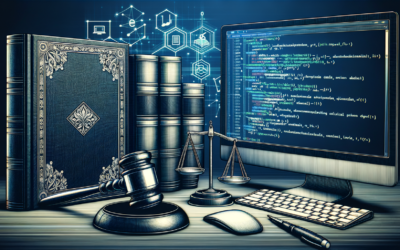Startup Legal
With technological advances and continuous innovation in the legal sector, legal startups are rapidly gaining ground. These companies rely on technology to offer new solutions to traditional legal challenges, and represent a key part of what is known as LegalTech.
What is a legal startup?
A legal startup is an innovative company in the legal field that uses technology to make legal services more accessible, more efficient or less costly. These companies can develop software, online platforms and automated services to modernize the legal system and the customer experience.
The advantages of legal startups
Legal startups offer many advantages for both legal professionals and their clients. For example, they can significantly reduce costs by automating repetitive tasks, thus improving the efficiency and productivity of law firms.
Time-saving automation
Automation is a mainstay of legal startups, saving precious time on tasks such as document management, contract lifecycle management and automated due diligence.
Accessibility and Democratization
Thanks to digitalization, legal services are becoming more accessible. Solutions such as online legal advice or online dispute resolution platforms offer practical and cost-effective alternatives.
Innovation and Expertise
Technological innovation is also fostering the emergence of new areas of expertise, such as robot law andAI in corporate law, paving the way for new legal practices and skills.
Trends and developments
As the legal sector continues to evolve, certain trends are emerging with regard to the future of legal startups. Artificial intelligence, big data and blockchain are technologies that are shaping this future.
Artificial Intelligence and Law
Artificial intelligence is transforming legal practice, enabling predictive analysis of legal decisions and automated legal advice.
Blockchain and Smart Contracts
Blockchain and smart contracts are revolutionizing the sector, bringing a new dimension to securing and enforcing contracts.
Data protection and security
Cybersecurity is becoming a central concern with the swarm of sensitive data managed by the legal sector, hence the growing importance of solutions such as legal cybersecurity and RGPD compliance.
Frequently asked questions
Here is a list of frequently asked questions related to legal startups.
What are the main tools used by legal startups?
Legal analysis tools, case management platforms and eDiscovery solutions are among the main tools used by these startups.
How are legal startups impacting traditional law firms?
They push them to innovate and integrate new technologies, leading to a restructuring of services and a more competitive, diversified offering.
Are legal startups accessible to small firms or sole practitioners?
Yes, many solutions are modular, enabling small practices and freelancers to benefit from the advantages of technology without the need for major investment.




